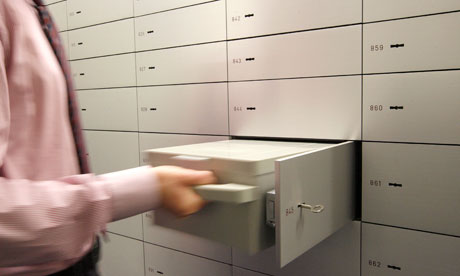'People will forgive you for being wrong, but they will never forgive you for being right - especially if events prove you right while proving them wrong.' Thomas Sowell
Search This Blog
Showing posts with label Switzerland. Show all posts
Showing posts with label Switzerland. Show all posts
Friday, 12 July 2024
Saturday, 21 October 2017
Referendums get a bad press – but to fix Britain, we need more of them
Voting once every five years alienates us from politics. Participatory rather than representative democracy would allow us more say in how we run the country.
George Monbiot in The Guardian
You lost, suck it up: this is how our politics works. If the party you voted for lost the election, you have no meaningful democratic voice for the next five years. You can go through life, in this “representative democracy”, unrepresented in government, while not being permitted to represent yourself.
Even if your party is elected, it washes its hands of you when you leave the polling booth. Governments assert a mandate for any policy they can push through parliament. While elections tend to hinge on one or two issues, parties will use their win to claim support for all the positions in their manifestos, and for anything else they decide to do during their term in office.
If you raise objections to their policies, you’re often told, “If you don’t like it, stand for election.” This response is revealing: it suggests that only 650 people out of 66 million have a valid role in national politics, beyond voting once every five years. Political control under this system is so coarse and diffuse that democracy loses all but its crudest meaning.
It is astonishing that we put up with this. The idea that any government could meet the needs of a complex, modern nation by ruling without constant feedback, and actual rather than notional consent, is preposterous.
Last week I considered some ideas for creating a more participatory economy. This column explores the potential for a more participatory democracy. I’m not proposing we abandon representative democracy, but that we temper it with meaningful deliberation and consent.
I recognise that this is an unpropitious time to call for more referendums. But the Brexit vote was the worst possible model for popular decision-making. The government threw a massive question at an electorate that had almost no experience of direct democracy. Voters were rushed towards judgment day on a ridiculously short timetable, with no preparation except a series of giant lies.
Worse still, an issue of astonishing complexity was reduced to a crude binary choice. Because the only options presented were in or out, everyone knows what the majority voted against; no one knows what kind of Leave it voted for. Why could we not have had a multiple choice, presenting the different ways in which we could have stayed in or left Europe? Without permission to make a nuanced decision, we had no incentive to achieve a nuanced understanding.A lively and intelligent politics demands an active and empowered electorate that can hold its representatives constantly to account. I propose three models that we could draw upon.
The first is the Swiss system. There, the people vote in about 10 or a dozen referendums a year, clustered into three or four polling days, challenging federal laws or proposing constitutional amendments. Referendums are triggered when someone can gather enough signatures. These plebiscites foster a strong sense of political ownership: people perceive that government belongs to them. This might explain why, in its survey of 40 nations, the Organisation for Economic Co-operation and Development discovered the Swiss had the highest levels of trust in government. Far from causing voter fatigue, the process stimulates a rich culture of engagement, debate and persuasion. Across the year, about 80% of the electorate vote in referendums.
When I mention the Swiss system, people tend to react with horror. What if, as they often do in Switzerland, people make conservative choices? Well, they are entitled to their conservatism. A true democracy reveals the character of a nation: in Switzerland it is generally conservative. And if you don’t like it, you have the opportunity, through the debates surrounding these plebiscites, to change people’s minds. (There is, however, an argument for preserving some constitutional norms, to prevent majorities from oppressing minorities).
The second model operates in Reykjavík, the Icelandic capital. Here anyone can propose an idea for improving the city or allocating its infrastructure budget, and anyone can vote for or against it. The most popular ideas are submitted to the city council. The scheme has been remarkably successful: 58% of the city’s people have taken part so far and 200 of their proposals have been adopted by the council. The result is better amenities and a resurgence of civic life.
The third, most radical, model is the Kurdish system. Particularly in Rojava, in northern Syria, but throughout the Kurdish region, the people have sought to introduce a system first proposed by the US ecologist Murray Bookchin and refined and adapted by the imprisoned leader of the banned Kurdish Workers’ Party, Abdullah Ocalan. It’s called democratic confederalism. Here, power is devolved not from the top down but from the bottom up: the primary political unit is a local assembly representing a village or an urban district. These assemblies then elect people to represent their interests in wider confederations, which in turn choose members to provide a voice in the region as a whole (Ocalan rejects the idea of the nation state). The federal government is purely administrative: it does not make policy but implements the proposals passed up to it by the assemblies.
The introduction of this system has been bumpy: perhaps unsurprisingly in a region under constant military attack. But it has been accompanied so far by a great enhancement of the representation of women, the development of a cooperative economy and stronger environmental protection. There’s a danger in this model of photocopy democracy – political control becomes fainter and greyer as decisions are passed upwards – which might permit political capture. There’s also a danger of granting excessive power to civil servants. But already the system, though haltingly, seems to be creating an oasis of democracy and trust in the Middle East’s political desert.
So how do we decide whether and how to reform British politics? Democratically, of course. The first step should be a constitutional convention, composed of citizens chosen by lot, accompanied by a small number of parliamentarians (to encourage parliament to accept the results). Its purpose would be to identify the principles that could govern our politics, then put them to the vote in a multiple-choice referendum. What does democracy mean, if the people are not allowed to choose their political system?
While I voted remain, my aim is to make the most of Brexit. In the chaos that will accompany our departure from Europe lies an opportunity to do everything differently. Taking back control? Yes, I’m all for it.
George Monbiot in The Guardian
You lost, suck it up: this is how our politics works. If the party you voted for lost the election, you have no meaningful democratic voice for the next five years. You can go through life, in this “representative democracy”, unrepresented in government, while not being permitted to represent yourself.
Even if your party is elected, it washes its hands of you when you leave the polling booth. Governments assert a mandate for any policy they can push through parliament. While elections tend to hinge on one or two issues, parties will use their win to claim support for all the positions in their manifestos, and for anything else they decide to do during their term in office.
If you raise objections to their policies, you’re often told, “If you don’t like it, stand for election.” This response is revealing: it suggests that only 650 people out of 66 million have a valid role in national politics, beyond voting once every five years. Political control under this system is so coarse and diffuse that democracy loses all but its crudest meaning.
It is astonishing that we put up with this. The idea that any government could meet the needs of a complex, modern nation by ruling without constant feedback, and actual rather than notional consent, is preposterous.
Last week I considered some ideas for creating a more participatory economy. This column explores the potential for a more participatory democracy. I’m not proposing we abandon representative democracy, but that we temper it with meaningful deliberation and consent.
I recognise that this is an unpropitious time to call for more referendums. But the Brexit vote was the worst possible model for popular decision-making. The government threw a massive question at an electorate that had almost no experience of direct democracy. Voters were rushed towards judgment day on a ridiculously short timetable, with no preparation except a series of giant lies.
Worse still, an issue of astonishing complexity was reduced to a crude binary choice. Because the only options presented were in or out, everyone knows what the majority voted against; no one knows what kind of Leave it voted for. Why could we not have had a multiple choice, presenting the different ways in which we could have stayed in or left Europe? Without permission to make a nuanced decision, we had no incentive to achieve a nuanced understanding.A lively and intelligent politics demands an active and empowered electorate that can hold its representatives constantly to account. I propose three models that we could draw upon.
The first is the Swiss system. There, the people vote in about 10 or a dozen referendums a year, clustered into three or four polling days, challenging federal laws or proposing constitutional amendments. Referendums are triggered when someone can gather enough signatures. These plebiscites foster a strong sense of political ownership: people perceive that government belongs to them. This might explain why, in its survey of 40 nations, the Organisation for Economic Co-operation and Development discovered the Swiss had the highest levels of trust in government. Far from causing voter fatigue, the process stimulates a rich culture of engagement, debate and persuasion. Across the year, about 80% of the electorate vote in referendums.
When I mention the Swiss system, people tend to react with horror. What if, as they often do in Switzerland, people make conservative choices? Well, they are entitled to their conservatism. A true democracy reveals the character of a nation: in Switzerland it is generally conservative. And if you don’t like it, you have the opportunity, through the debates surrounding these plebiscites, to change people’s minds. (There is, however, an argument for preserving some constitutional norms, to prevent majorities from oppressing minorities).
The second model operates in Reykjavík, the Icelandic capital. Here anyone can propose an idea for improving the city or allocating its infrastructure budget, and anyone can vote for or against it. The most popular ideas are submitted to the city council. The scheme has been remarkably successful: 58% of the city’s people have taken part so far and 200 of their proposals have been adopted by the council. The result is better amenities and a resurgence of civic life.
The third, most radical, model is the Kurdish system. Particularly in Rojava, in northern Syria, but throughout the Kurdish region, the people have sought to introduce a system first proposed by the US ecologist Murray Bookchin and refined and adapted by the imprisoned leader of the banned Kurdish Workers’ Party, Abdullah Ocalan. It’s called democratic confederalism. Here, power is devolved not from the top down but from the bottom up: the primary political unit is a local assembly representing a village or an urban district. These assemblies then elect people to represent their interests in wider confederations, which in turn choose members to provide a voice in the region as a whole (Ocalan rejects the idea of the nation state). The federal government is purely administrative: it does not make policy but implements the proposals passed up to it by the assemblies.
The introduction of this system has been bumpy: perhaps unsurprisingly in a region under constant military attack. But it has been accompanied so far by a great enhancement of the representation of women, the development of a cooperative economy and stronger environmental protection. There’s a danger in this model of photocopy democracy – political control becomes fainter and greyer as decisions are passed upwards – which might permit political capture. There’s also a danger of granting excessive power to civil servants. But already the system, though haltingly, seems to be creating an oasis of democracy and trust in the Middle East’s political desert.
So how do we decide whether and how to reform British politics? Democratically, of course. The first step should be a constitutional convention, composed of citizens chosen by lot, accompanied by a small number of parliamentarians (to encourage parliament to accept the results). Its purpose would be to identify the principles that could govern our politics, then put them to the vote in a multiple-choice referendum. What does democracy mean, if the people are not allowed to choose their political system?
While I voted remain, my aim is to make the most of Brexit. In the chaos that will accompany our departure from Europe lies an opportunity to do everything differently. Taking back control? Yes, I’m all for it.
Tuesday, 11 February 2014
Switzerland's immigration 'victory' over the EU is a fairytale sold by the far right
Eurosceptics are lining up in praise of the defiant vote, but the fallout for Swiss people could be devastating

The French National Front party leader Marine Le Pen. Photograph: Nicolas Tucat/AFP/Getty Images
The winners of the Swiss referendum on EU immigration now tell a story that has become ingrained in Swiss lore: that poor, powerless peasants have cast off their evil foreign lords and masters. Not surprising, then, that after engineering the victory, the billionaire member of parliament Christoph Blocher, of the populist rightwing Swiss Peoples Party (SVP), stated: "Now we take power in our own hands again, the government must represent the will of the Swiss people in Brussels – the sooner the better."
The supposed victory of the Swiss David over the EU Goliath has been applauded by Geert Wilders of the Dutch far-right Freedom Party (PVV) and in France by Marine Le Pen's National Front. The Eurosceptic FPÖ in Austria and the Alternative für Deutschland (AfD) are also now demanding that voters in their countries should have the same say on EU matters, particularly immigration.
Switzerland, however, is a poor model for these countries to emulate. The Swiss don't need an EU exit because all they have is à la carte bilateral accords with the union. The free movement of citizens was the bitter pill the right had to swallow for goodies such as participation in EU research programmes, transit agreements, or police and asylum co-operation. Thanks to the latter, Switzerland can, for example, repatriate asylum seekers to EU countries.
If Britain, the Netherlands and other countries think they can break away from the EU while cherry-picking the bits they still want, like the Swiss have, they are dreaming. Switzerland could only ever opt for an all-or-nothing agreement – with a guillotine clause. This means that if one bilateral agreement is broken, as far as the EU is concerned all the rest is invalid too, and the fallout is potentially devastating. The Swiss business community, our hospitals, schools and colleges, tourism and the building industry which rely on an EU workforce are appalled. Students who benefit from EU exchange programmes and the energy sector which wants to sell its storage capacity to the EU all now fear that their future is called into question.
To see Switzerland as a role model for autonomy or the repatriation of sovereignty is a misjudgment of the reality. The more bilateral accords Switzerland gathered, the clearer it became that Switzerland was merely enacting EU law in a "self-governed" way. Autonomy was an illusion. In 2012, the council and the commission of the EU made clear to the Swiss that no new bilateral agreements would be possible unless Switzerland took on board all future EU reforms and developments. Since then, Swiss demands for a bilateral agreement on services and energy have stalled – and now there will be no accord anytime soon.
Of course, Blocher and his followers still believe that the EU will give us a helping hand whenever we need it. But what EU governments want from Switzerland is tax on the undeclared money of their citizens deposited in Swiss banks. Blocher's story of the poor peasant who opposes the foreign king is, in the face of Swiss wealth, ridiculous. The Italians whose workers are no longer welcome in Switzerland now say they want the tax being hidden by Italians in Swiss bank accounts – and if necessary they will name and shame tax dodgers like Germany does.
If anything Switzerland should be a bad model for EU countries. It was not only ultra-conservatives in the Swiss-German countryside who voted in favour of ending EU immigration. It was also the many workers, faced with competition from cheaper migrant labour, commuters in overcrowded trains and middle-class families who can no longer afford flats in the cities. Yet these moderate voters – they are estimated to account for 20% of the yes voters – received little to calm their fears. They wanted rent controls, measures to guard against wage dumping and minimum salaries. But there was no clear support from employer associations, the companies that profit most from the free movement of workers, nor the government.
So their perfectly rational concerns were exploited by the fear campaign waged by the rich Pied Pipers of the right. There are many more such Pied Pipers going around Europe with easy, popular solutions, including the scapegoating of immigrants, in an attempt to win the votes of those with justifiable fears. Switzerland has an unemployment rate of 3.5%; there is a lot to lose.
Switzerland is not a model for more wealth with autonomy in the EU. Its competitive advantages such as banking secrecy and low holding taxation are waning, and its most important resource, the brain power of the people, is now curtailed by immigration quotas. Switzerland is a stark warning to those EU companies, organisations and professionals who reap the fruits of the single market and the globalised economy, while giving little or no thought to the millions of ordinary workers who would miss out if the EU project came unstuck.
Friday, 24 February 2012
Friday, 12 August 2011
German tax dodgers with money hidden in Swiss banks can sleep easy tonight.
Germany has set back the fight against tax evasion
Those who squirrel away undeclared wealth in Switzerland will be pleased by this deal. What's worse, the UK may follow suit

'Germany is setting back years of work towards the global prize of ending banking secrecy in the world's most pervasive tax haven.' Photograph: Arnd Wiegmann/Reuters/Corbis
German tax dodgers with money hidden in Swiss banks can sleep easy tonight. For the German government this week initialled a beggar-thy-neighbour deal that undermines years of diplomatic work to penetrate Switzerland's globally corrosive banking secrecy. The agreement, which is due to be signed by both governments over the next few weeks, sees Germany accepting a paltry $2.8bn upfront from the Swiss banks said to hold some $276bn of Germans' undeclared wealth .
In addition, the deal says that Germans will in future be taxed at 26% on the income from their Alpine accounts – money the Swiss authorities will then hand over to Germany. But the Germans with secret accounts will not be forced to tell the taxman that they are hiding their wealth abroad. Their identities will remain secret, allowing Swiss bankers to keep their boasts about "privacy" and "confidentiality".
Both governments are spinning their agreement as a huge success for international co-operation and the fight against tax evasion.
In fact, Germany is setting back years of work towards the global prize of ending banking secrecy in the world's most pervasive tax haven. It has dealt a serious blow to prospects for automatic, multilateral exchange of tax-related information between governments, which is the gold standard for deterring tax dodging.
German Tax Justice Campaigners are hoping the deal with Switzerland can be repealed. But what about the scores of countries without the economic and political clout to negotiate such agreements with Switzerland? How are they to capture some of the billions they are haemorrhaging as a result of tax dodging and corruption?
They are reliant on the kind on international co-operation that NGOs including Christian Aid are fighting for, in order to End Tax Haven Secrecy. There may be worse to come. Here in the UK, HM Treasury is negotiating a similar agreement with Switzerland. It has simply been biding its time to see what kind of deal Germany gets.
With the UK government pursuing such a self-interested and myopic policy, it is no surprise that senior UK diplomats appear distinctly disinterested in playing ball at the G20, where a truly global deal to end tax haven secrecy could be brokered.
A former senior US Treasury official, who used to negotiate tax treaties for the US, recently told me of his fury about how these dirty deals are undoing a whole career's worth of work against financial secrecy.
Such is the scourge of tax havens that the Tax Justice Network estimate assets held offshore total $11.5tn – which if taxed could yield revenues in excess of $225bn. This is money that could be paying for schools, hospitals, university fees and so on – not only in the developed world but also in developing countries. It is $11.5tn that could be used productively in the global economy rather than stashed away in an Alpine tax haven for private gain.
Meanwhile, the real Swiss economy doesn't seem to be benefiting too much from the influx of dodgy capital. Its government this week met for a third unscheduled session to grapple with curbing the surging value of the Swiss franc, which is damaging Swiss exports and sending the economy down a precarious path.
Yet again, it is vested interests who are winning out over the real economy and the everyday citizens who are being deprived of essential services, whether in Basel, Berlin or Bamako.
- © 2011 Guardian News and Media Limited or its affiliated companies. All rights reserved.
Subscribe to:
Comments (Atom)

